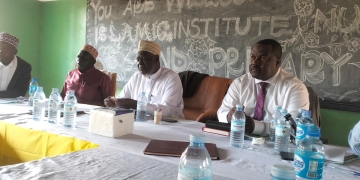
KAMPALA – Discussions on women’s land rights in Africa often begin with the widely accepted premise that women have less tenure security than men. While this is undoubtedly true, the devil is in the details. A closer look at how tenure insecurity manifests in different contexts—whether Uganda or elsewhere in Sub-Saharan Africa—reveals a considerably more nuanced picture. To develop effective, targeted interventions, we must move beyond broad generalizations and focus on the specific barriers and opportunities that women face within various customary and statutory land tenure systems.
Common Narrative and Its Limitations
Exclusion and dispossession dominate narratives around women’s land rights across Africa. Various reports and policy papers cite the fact that women provide the majority of agricultural labor, yet own only a fraction of the land. Legal and cultural barriers, it is often argued, systematically deprive women of secure tenure, leaving them vulnerable to eviction, economic instability and food insecurity. However, a growing body of research suggests that while the disparities in land ownership are real, they are not uniform.
The late Judy Adoko, a prominent Ugandan land rights advocate highlighted that customary tenure systems–often portrayed as inherently patriarchal–are considerably more complex than they appear. Adoko stressed women’s land rights are often recognized within their families and clans under customary tenure, but that these rights are becoming increasingly precarious due to external pressures associated with population growth, land commodification and the erosion of traditional governance structures. Under some circumstances, women’s rights under customary tenure can be more secure than statutory legal frameworks that are often costly and difficult to access and navigate.
Liz Alden Wily, a prominent authority on customary land tenure based in Kenya, stresses that customary land tenure in Africa is not static, but evolves in response to economic and social change. Land reforms that formalize land ownership can have unintended consequences such as weakening communal landholding systems that traditionally allowed women to access land through their families. Rather than simply advocating for Western-style land titling systems, strengthening customary mechanisms that already recognize women’s rights while addressing the challenges that make these rights vulnerable can be more effective approach.
Uganda: A Case Study in Nuance
Uganda provides an illustrative example of why blanket assumptions about women’s land tenure security can be misleading. Research by Margaret Rugadya, Esther Obaikol and Herbert Kamusiime analyzed the impact of Uganda’s land reforms on women’s land rights extensively and found that while the 1998 Land Act granted women equal rights to land ownership, the absence of a clause making co-ownership of property between spouses mandatory left many women vulnerable. They argued that although statutory law provided opportunities for women to claim land; cultural barriers and weak enforcement mechanisms continued to undermine tenure security.
Research on the status of policy implementation indicates that the legal recognition of women’s rights does not automatically translate into security. Customary tenure, that governs the majority of land in Uganda, offers women access to land through their families or spouses, but this access can be revoked in cases of widowhood, divorce or disputes. Land tenure insecurity is exacerbated by weak governance structures in areas of post-conflict northern Uganda leaving women particularly vulnerable to land grabbing and disputes.
Moving Towards Targeted Solutions
If we accept the premise that women’s tenure security in Africa is complex and context-specific, the question then becomes: what kinds of interventions are most effective?
There is clearly a need for legal pluralism—recognition that both customary and statutory land tenure systems play a role in securing women’s rights. Instead of replacing customary systems with formal land titling schemes, policymakers should explore ways to strengthen and adapt customary practices to better protect women’s rights in the changing economic landscape.
Interventions must be tailored to different categories of women. Research shows reveals that unmarried mothers, for example, face unique challenges in securing tenure, as they are often seen as temporary members of their natal families. Programs that work within customary frameworks to recognize their contributions to family land can help provide them with stronger tenure security. Under certain circumstances, widows can be vulnerable to land grabbing from in-laws. Improving understanding and awareness around inheritance rights and enforcement within both customary and statutory systems can help address this issue.
Strengthening women’s participation in land governance is critical. Land related decisions in many customary systems are made by male elders, but there are clear opportunities to include women in these decision-making processes. Supporting female leadership within customary institutions can help ensure that women’s perspectives and rights are adequately represented.
Economic empowerment initiatives that improve women’s access to financial resources such as credit and agricultural inputs can increase their bargaining power within both statutory and customary land tenure systems. Increased recognition of women’s economic contribution to land-based livelihoods will strengthen claims to equal rights.
Conclusion
Women’s land tenure security Africa—and Uganda in particular—is a complex issue that defies simple solutions. While women generally have less secure land rights than men, the details matter. Blanket policy solutions that fail to take the nuances of customary and statutory tenure systems into account not only waste resources, but sometime risk doing more harm than good. Understanding the intricacies of women’s land rights is not an academic exercise, but a necessary step toward meaningful and lasting change.
==============================================================================
The writer, Christopher Burke is a senior advisor at WMC Africa, is a communications and advisory agency located in Kampala, Uganda. With over 30 years of experience, he has worked extensively on social, political and economic development issues, focused on land governance, agriculture, environmental issues, conflict mediation and peace-building in Asia and Africa.










